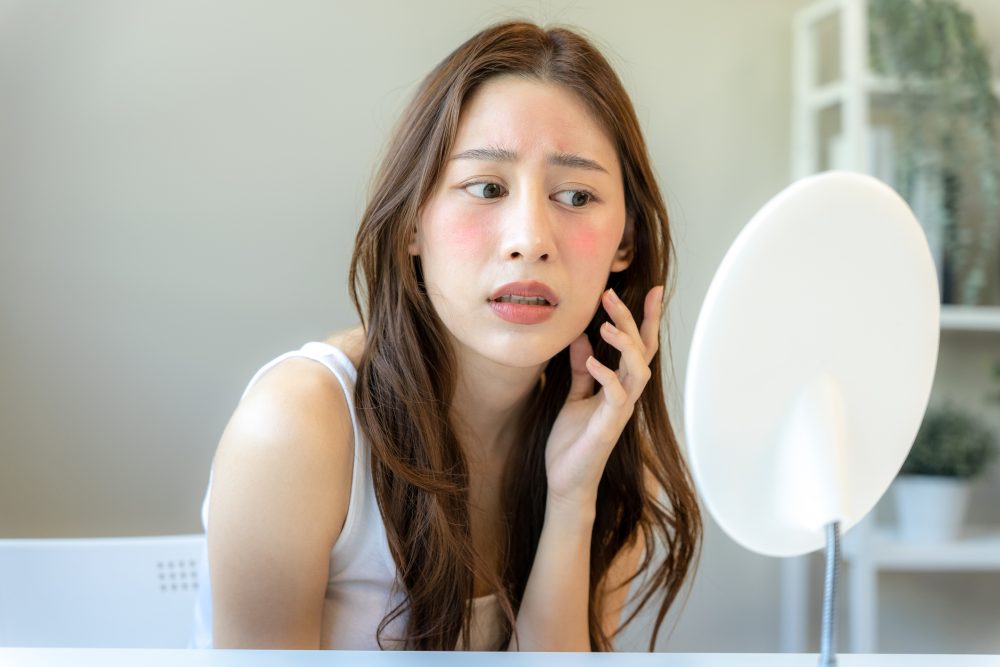Acne is a common skin condition that affects millions of people worldwide, transcending age, gender, and ethnicity. Often associated with adolescence, acne can persist into adulthood and cause emotional distress and self-esteem issues. In this article, we delve into the world of acne, exploring its causes, available treatments, and preventive measures to help you better understand and manage this widespread skin concern.

Understanding Acne
Acne is a dermatological condition characterized by the development of pimples, blackheads, whiteheads, and sometimes deeper cysts on the skin. It occurs when hair follicles become clogged with oil, dead skin cells, and bacteria, leading to inflammation and the formation of various acne lesions.
Causes of Acne
- Hormonal Fluctuations: Hormonal changes during puberty, menstruation, pregnancy, and menopause can trigger acne outbreaks. Androgens, male hormones present in both males and females, stimulate the sebaceous glands to produce more oil, increasing the likelihood of clogged pores.
- Excess Sebum Production: Sebaceous glands located beneath the skin’s surface produce sebum, an oily substance that helps keep the skin moisturized. When the sebaceous glands produce an excess of sebum, it can mix with dead skin cells, leading to clogged pores and acne.
- Bacterial Infection: Propionibacterium acnes, a type of bacteria commonly found on the skin, can multiply rapidly within clogged pores, causing inflammation and redness.
- Genetics: Family history plays a role in determining one’s susceptibility to acne. If your parents or close relatives had acne, you may be more prone to developing it too.
- Lifestyle Factors: Certain lifestyle habits, such as a high-glycemic diet, excessive stress, and inadequate skincare, can exacerbate acne.
Acne Treatments
- Topical Medications: Over-the-counter or prescription topical treatments containing ingredients like benzoyl peroxide, salicylic acid, and retinoids can help unclog pores, reduce inflammation, and promote skin cell turnover.
- Oral Medications: In more severe cases, a dermatologist may prescribe oral antibiotics or hormonal medications (e.g., oral contraceptives for women) to control bacteria and hormonal imbalances.
- Isotretinoin: For severe and persistent acne that does not respond to other treatments, isotretinoin, a powerful oral medication, may be prescribed. It is highly effective but requires close monitoring due to potential side effects.
- Light Therapy: Photodynamic therapy and blue light therapy are non-invasive procedures that use light to target and kill acne-causing bacteria and reduce inflammation.
- Chemical Peels: Chemical peels involve applying a solution to the skin, exfoliating the top layer and helping to unclog pores and improve skin texture.
Preventing Acne
- Proper Skincare: Adopt a gentle skincare routine using non-comedogenic products that won’t clog pores. Regularly cleanse, moisturize, and protect your skin from the sun.
- Hands Off: Avoid touching your face, as it can transfer dirt, bacteria, and oil to the skin, worsening acne.
- Healthy Diet: Maintain a balanced diet rich in fruits, vegetables, and whole grains while limiting sugary and high-glycemic foods that may contribute to acne flare-ups.
- Manage Stress: Stress can aggravate acne, so engage in stress-reducing activities such as exercise, yoga, or meditation.
- Avoid Picking or Squeezing: Popping pimples can lead to scarring and further inflammation, so resist the temptation to squeeze acne lesions.

